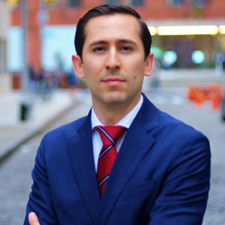
The Research Division of the Federal Reserve Bank of St. Louis offers dissertation internships to PhD students in economics. The internship targets students with strong research interest. The purpose of the internship program is to increase the students’ experience and exposure to scholarly research. The students will interact with the research economists at the Bank as well as visiting Washington University faculty, other visiting scholars, and other dissertation interns.
Below are examples of where past Dissertation Interns have gone on to accept positions:
University of Minnesota
Western University (Canada)
University of Michigan
University of Rochester
London School of Economics
University of Southern California

SUNY – Stony Brook
When 28 million workers in March and April 2020 applied for unemployment insurance (UI), it was the first time that applications were not evaluated based on standard eligibility requirements. With the sudden arrival of the pandemic, job loss surged unprecedentedly, and the job-finding rate collapsed. In order to mitigate these pandemic effects on workers, several UI policy changes were made to the existing UI system.
"A Quantitative Analysis of Relaxing UI Eligibility Requirements" (PDF)

University of Wisconsin
Job loss from layoffs or business closings, called job displacement, often leads to large and long-lasting earnings declines for workers. However, the importance of such an event varies significantly with age. Older workers suffer larger losses to their earnings, since they have farther to fall down the career ladder and more difficulty finding jobs at their prior level.
"Job Displacement Outcomes over the Life Cycle" (PDF)

University of Pennsylvania
How does wealth affect the allocation of workers to firms? In a recent working paper, Jincheng “Eric” Huang and Xincheng Qiu, both PhD candidates at the University of Pennsylvania, argued that the distribution of wealth can directly influence the efficiency of labor market allocation resulting from an interaction between workers’ self-insurance incentive and job search strategies. They called this interaction a “precautionary mismatch” motive.
"How Does Wealth Affect Labor Market Mismatch and Productivity?" (PDF)

University of Wisconsin
Many countries have employment protections that create two-tiered labor markets in which some jobs are more secure than others. Those in less secure jobs tend to be younger, experience more frequent unemployment spells, and contribute to labor force flexibility.
"Alternative Work Arrangements: Business and Life Cycle Implications" (PDF)

New York University
A vast literature has studied the relation between the functioning of financial markets and economic growth. This line of research is motivated by the positive correlation between finance and income observed across countries. Less is known, however, about the nature of external financing over the life cycle of firms and whether these patterns vary for countries of different levels of development.
"Finance Over the Life Cycle of Firms: Evidence from High- and Middle-Income Countries" (PDF)

University of Rochester
Exports vary significantly across countries. Understanding the main reasons behind these cross-country differences is relevant for improving our knowledge about the determinants of trade flows across nations. This knowledge can provide useful insights for the design of policies and mechanisms that will allow societies to reach higher living standards through the gains of international trade.
"Why Does Volatility Matter for International Trade?" (PDF)

Emory University
In countries with informal and formal jobs, a worker’s decision over a type of job is also a pension decision. Because a contribution to the pension system can only be enforced in a formal job, workers in labor markets with informality are greatly affected by their decisions about job type. Only formal workers are saving for retirement in a pension system.
"How Do Pension Systems Interact with Labor Market Informality?" (PDF)

University of California – Irvine
Movements in economic sentiments of households and firms are an important indicator of aggregate economic activity. Along with a noisy signal about future consumption and productivity, sentiments can indicate the beliefs of economic agents about fundamental variables of the economy. As a result, they can significantly impact the transmission of monetary and fiscal policy to economic activity
"Fiscal Policy and Sentiments in a Monetary Union" (PDF)

University of Georgia
Contracting out (firms purchasing workers’ labor from outside contractors) is a strategy that firms use to access workers without hiring them directly. Contract workers, who are in occupations ranging from security guards to management analysts, work at and take orders from the firm but are paid by the contractor.
"The Equilibrium Effects of Domestic Outsourcing" (PDF)
Daniele Caratelli, Stanford University
Suleyman Gozen, University of Chicago
Xian Jiang, Duke University